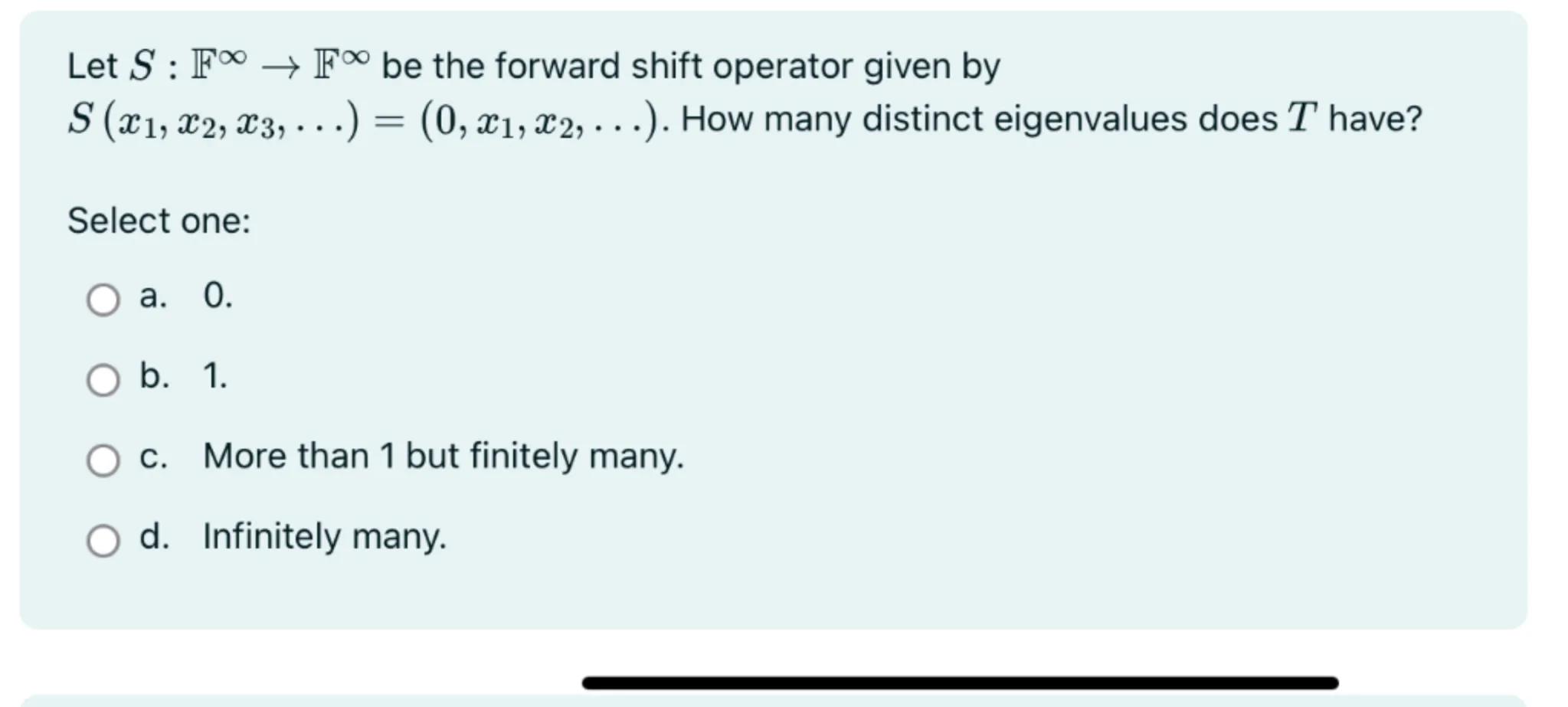
Sia
Let be the forward shift operator given by . How many distinct eigenvalues does have?
Select one:
a. 0.
b. 1.
c. More than 1 but finitely many.
d. Infinitely many.

Answer from Sia
Posted about 1 year ago
Solution by Steps
step 2
Let . Then, applying the operator gives us . The eigenvalue equation becomes
step 3
This leads to the system of equations: and , , etc. If , then must be 0, which implies . Thus, must be the zero vector
step 4
Therefore, the only eigenvalue that satisfies the eigenvalue equation is . Since there are no other values of that can satisfy the equation, we conclude that there is only one distinct eigenvalue
step 5
Hence, the answer to the question is that the forward shift operator has exactly one distinct eigenvalue
B
Key Concept
Eigenvalues of Operators
Explanation
The eigenvalues of an operator are the scalars that satisfy the eigenvalue equation, and in the case of the forward shift operator, the only eigenvalue is zero.
Not the question you are looking for? Ask here!
Enter question by text
Enter question by image
Unlock Smarter Learning with AskSia Super!
Join Super, our all-in-one AI solution that can greatly improve your learning efficiency.
30% higher accuracy than GPT-4o
Entire learning journey support
The most student-friendly features
Study Other Question
